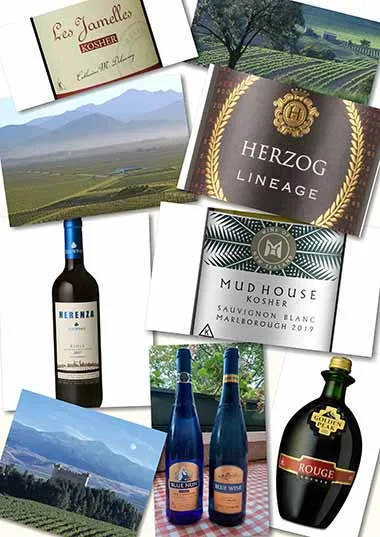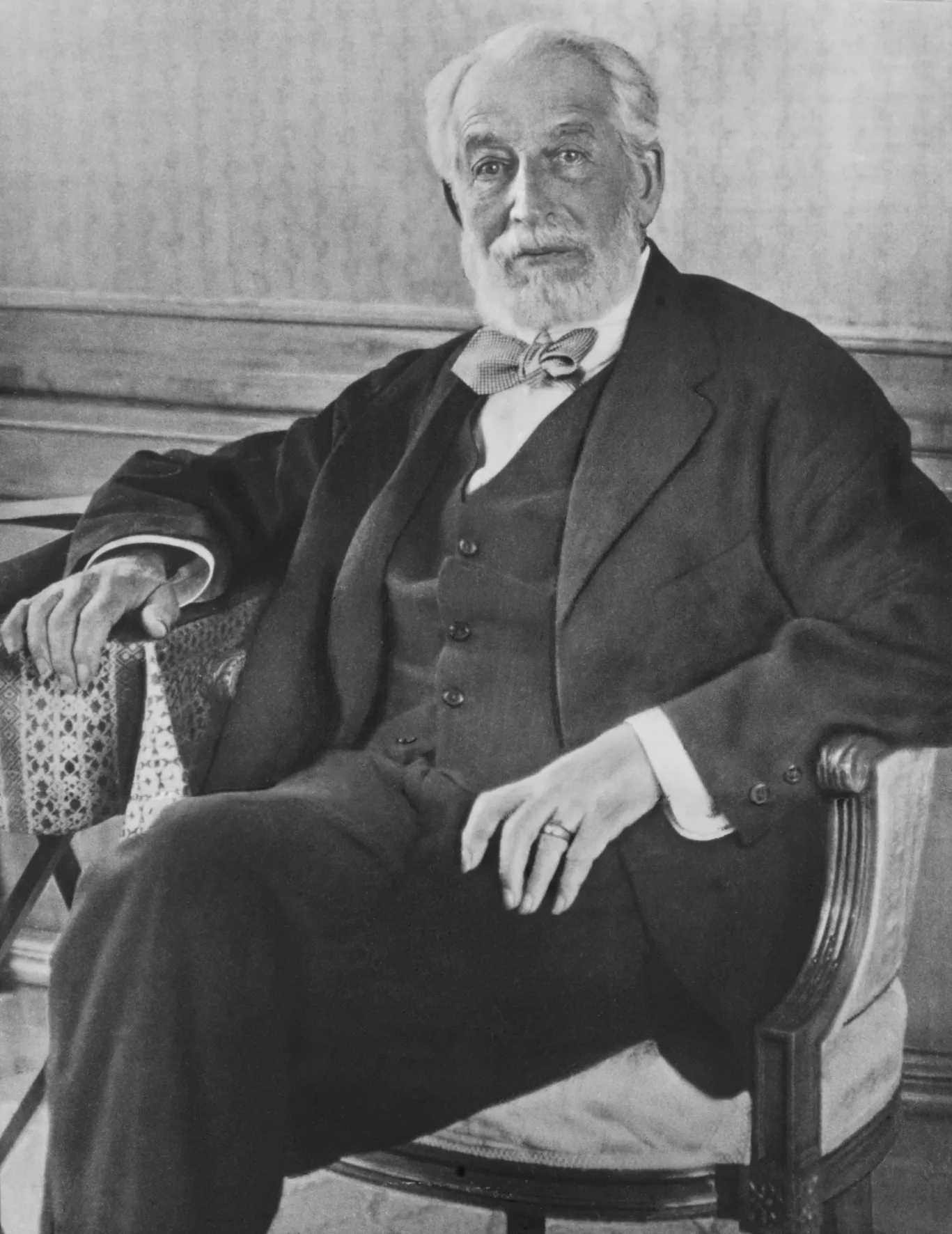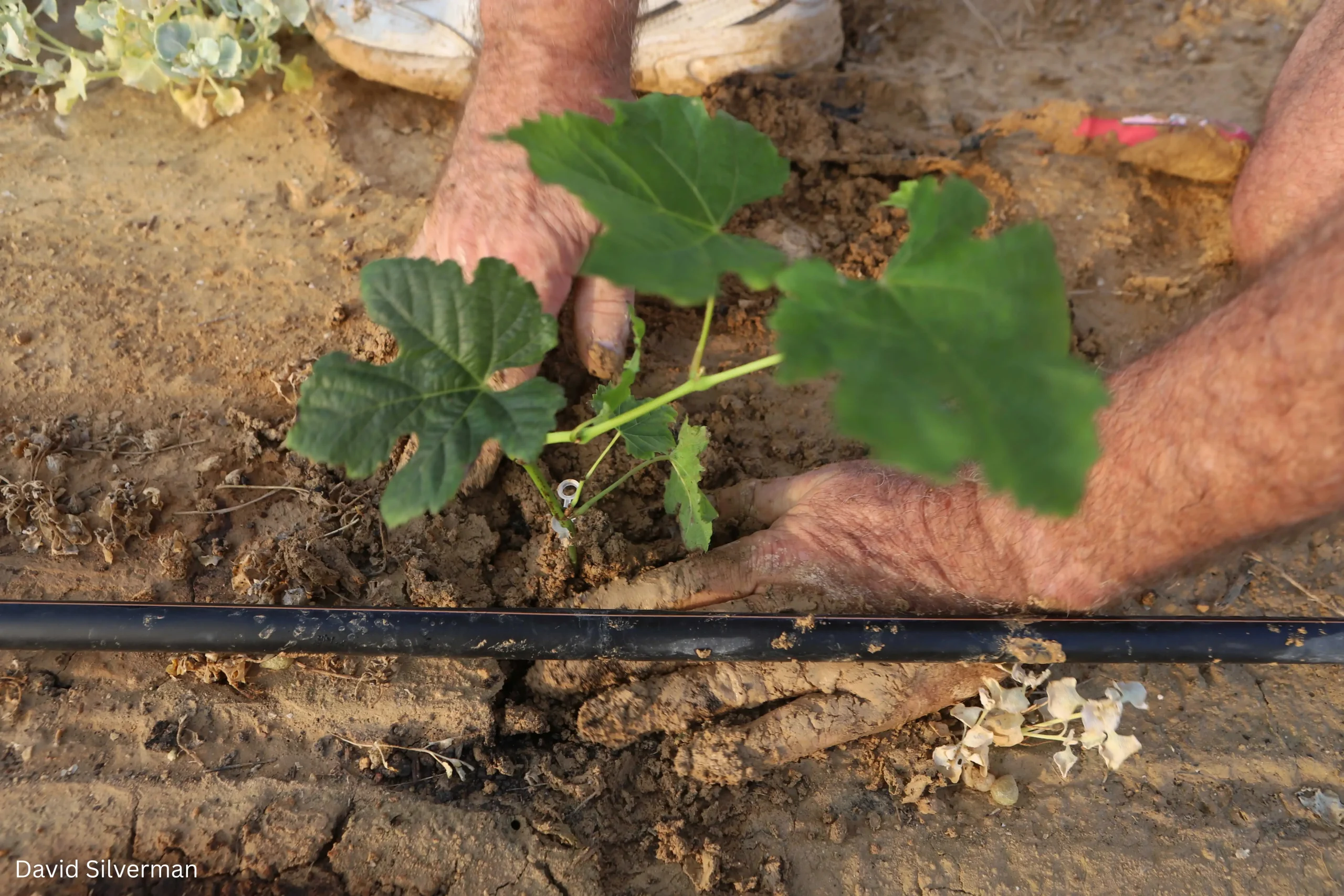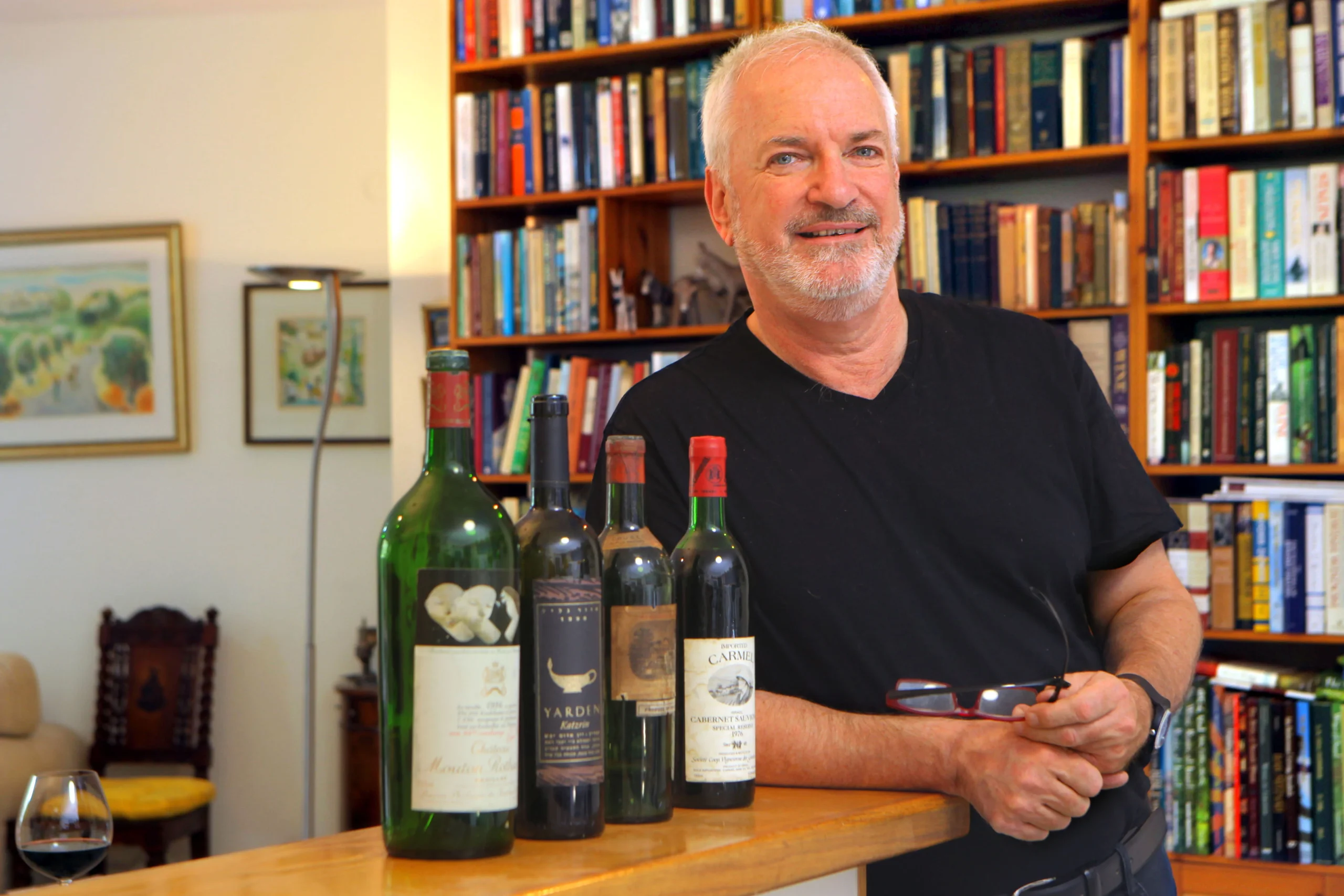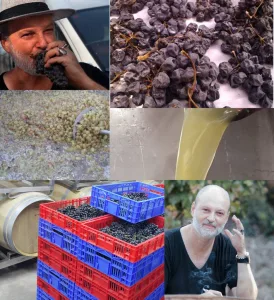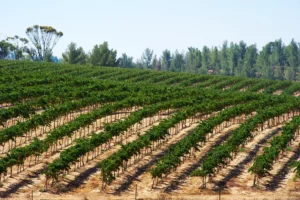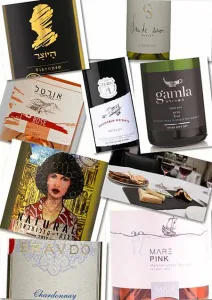I usually write about Israeli wine and do not differentiate whether the wine is kosher or not, on the basis that wine is wine, and it is not better or worse because it is kosher. However, for those interested in kosher wines, I have decided this week to recommend a few imported kosher wines, which represent excellent QPR (quality per price.)
The history of wine kashrut is deeply interesting. There was no kashrut supervision until the 1920’s. Before that, apart from Carmel, kosher wine was more or less a domestic cottage industry. You bought from someone you knew personally if the provenance of the wine was important to you. Whilst the kosher meat industry built up a kosher infrastructure by necessity, wine was comparatively slow to get in on the act.
Kosher in those days was not regarded with the same protective fervor as today. David Ben-Gurion, Israel’s first prime minister, worked at Rishon Le Zion Wine Cellars in the wine department. It would not be possible today as only religious Jews are permitted. A period working at a winery did not make Ben-Gurion a wine lover. In fact, the opposite is the case. Fumes of fermenting wine made him feel so nauseous that it was years before he could bring himself to drink wine afterwards.
It will shock many but at Carmel Mizrahi, that paradigm of kosher standards, workers at the winery up to as late at the early 1980’s were Jewish, but not necessarily religious. In the 1970’s they were sending Palwin in barrels overseas to be bottled in London. Again kashrut standards of today would not permit this.
Since those lax days, kashrut in wine went crazy. It became almost competitive as different authorities vied for the business, each one, excuse my French, trying to be holier than the Pope. I remember a mashgiasch (religious supervisor) roaring at a VIP customer to get away from a barrel when they got too close on a winery visit. Others are more relaxed, appreciating that touching the barrel is not a catastrophe, but causing the wine itself to move is.
Most of the wine in Israel is kosher. At least 95%. However, I estimate only about 55% of the wineries are kosher. Approximately forty five percent are not kosher, but most of these are boutique wineries, garagistes and domestic wineries. The paradox is caused by the fact that most of the larger wineries are kosher. Out of the twenty largest wineries in the country, only Pelter is producing non-kosher wines.
However, in defence of non-kosher Israeli wineries, it is worth pointing out that none of their wines is Yayin Nesech (produced by idol worshipers) and the vast majority of the non-kosher wineries are owned by Jews (Stam Yeinam refers to wine owned by non-Jews), which leads to the definition of a Jew. This is a wine column and I won’t go there! Wine or grape juice is intrinsically kosher. How it is handled, what is added and the intention of the winemaker can render it un-kosher.
Nonetheless, there has been a steady stream of non-kosher wineries becoming kosher, and then it is usually for economic reasons, not because they have seen the light. First was Domaine du Castel and Tzora Vineyards, and more recently Flam Winery and Vitkin Winery. Pelter Winery took a different approach. They have a kosher winery called Matar by Pelter, on the same premises, which is under lock and key and produces kosher wines. There are rumors that Chateau Golan is poised to follow the same approach.
There are many inexpensive Israeli kosher wines, but the best imported kosher wines are often expensive. Yet lately there has been a boom in the quality of kosher wines available in Israel, so the kosher wine drinker is in clover. With the onset of the coming Holidays, I want to pinpoint those which I am particularly excited are here.
MUD HOUSE SAUVIGNON BLANC 2019, New Zealand New Zealand wines are becoming more well-known here. Sauvignon Blancs are on the rise. One of the best value of this new wave is a wine called Mud House. It is wildly popular. Now for the first time there is a kosher cuvee. It is from the 2019 vintage. Amusing to drink a 2019 wine whilst we are in the middle of the 2019 harvest, but of course New Zealand is a Southern Hemisphere country, so the harvest will have been in the spring.
The wine is the classic Kiwi Sauvignon Blanc. Aromatic with lashings of tropical fruit, grapefruit and tomato plant, it is crisp with a great, refreshing acidity. It comes from the Marlborough region. For the kosher wine drinker, this is a fantastic addition to the ranks. NIS 65
BLUE NUN KOSHER 2018 / BLUE WINE 2018, Germany Blue Nun is the largest selling wine in Israel. It comes with so many labels, that it is confusing, but the consumer is not confused. If Blue Nun is on the label it is ok. It is one of the world’s most famous brands founded in 1921 by the Sichels, a Jewish family in Germany. It grew to become the biggest brand in the world in its time, was at its peak when I was in the wine trade in England.
The wines are unashamedly semi sweet, fruity and easy drinking. The real Blue Nun, the one sold worldwide, is called Authentic in Israel. It is made from the Rivaner grape (aka Muller-Thurgau), and it is not kosher. The trailblazer in Israel is the Blue Nun made from Gewurztraminer. But is also not kosher. Both have blue diamond shaped labels and are in the iconic blue bottle.
Now the kosher consumer may also enjoy Blue Nun. The kosher wine is made from a Gewurztraminer Riesling blend. Confusingly, one version sold in wine shops has the original famous label of a Nun in a blue habit, and the second version sold in supermarkets is called Blue Wine. Though dressed differently, rest assured, they are both kosher, of course in a blue bottle, and they are both Blue Nun!
I found the Israeli versions better balanced than the Authentic and good news for kosher drinkers, preferred the two kosher versions more than the Gewurztraminer. There was a slight difference in the kosher wines. The Blue Wine had a slight spritz to it, but I saw it as refreshing rather than a fault. Probably different bottlings of the same wine.
The wines may be sneered at by connoisseurs but the consumer in Israel loves it. Two million bottles are sold here and I defend the consumers right to enjoy it whatever the experts say. NIS 50-55.
HERENZA SEMI CRIANZA RIOJA 2017, Elvi Wines, Spain Moises Cohen is a frighteningly talented agricultural engineer who is at the forefront of water technology and its use in managing vineyards. As such he is much in demand as a consultant all over. Being a valued consultant to some pretty hot wineries has allowed him to cherry pick and create his own portfolio under his company Elvi Wines. (El is G-d, and Vi is wines.)
This Herenza wine is fantastic value, no less. Bright fruit, sour cherry with ripe berries, enchanting mouth feel of fruit backed by an earthiness, hints of mocha and herbal notes. It is a great drinking wine, good with food, and yet is far from bombastic or heavy. Heartily recommended. NIS 50-60
LES JAMELLES MALBEC 2017, France Les Jamelles is a thriving brand and is very popular in Israel. Now they have come out with four kosher wines, that greatly add to the range of quality, good value wines available to the kosher wine drinker. There is a Chardonnay, Cinsault Rose, Malbec and Cabernet Sauvignon. All are charming Mediterraneran wines offering great drinking.
Catherine and Laurent Delaunay, a winemaking couple with a long tradition of wine production in Burgundy, fell in love with the Languedoc region of southern France. The passion for wine and the Mediterranean culture made them move there in the early 90’s. Their aim was to produce accessible wines, rich in flavors and aromas, that express the lifestyle of southern France. Twenty-five years later, Les Jamelles wines are sold with great success in 45 countries around the world. The wines of Les Jamelles provide great pleasure, suitable for every meal and event, and in particular constitute an extraordinary value to their price.
The Malbec is my favorite. Bursting with fruit, medium bodied and spicy with an accessible freshness and a well-balanced finish. NIS 55-60.
LINEAGE CABERNET SAUVIGNON, Herzog Wine Cellars, California This is a cracking good Cabernet for the price. It has a boldness and richness, but is self-contained. Good fruit, a full flavor in the mouth, supported by a reasonable structure with a satisfying finish. It is from Herzog Wine Cellars from Paso Robles vineyards in California. Owned by the Herzog family in southern California, who have been pioneers of quality kosher wine. The name Lineage pays homage to this family that have made wine for eight generations in Slovakia, New York and California. NIS 100
CAPCANES PERAJ PETITA 2017, Spain Capcanes is a cooperative known for many years for simple bulk wines. When the Barcelona Jewish community approached them with the request to make a quality kosher wine, they made a wine so good that the excellent reviews encouraged the winery to make a switch from bulk to quality. In other words a kosher wine changed the whole direction of the winery. Capcanes is now a very highly regarded winery with wines receiving worldwide recognition. Only 5% of what they produce is kosher, but they are producing some of the best quality kosher wines.
The entry level Peraj Petita is a blend mainly of Grenache, Tempranillo and Merlot from the Monsant region in Spain. It is fruit forward, complex with a chewy, earthy mouth feel, and a long fruit driven finish. It is a great introduction to Capcanes wines. NIS 100
GOLDEN PEAK RED, Germany I was recently at a meeting of a leading Israeli winery where they disparaged and ridiculed this product. At that moment I decided to recommend it…..and I would not be surprised if I am the only wine writer to do so. This is a ‘I drink What I Like Wine’. It is a semi sweet red wine (semi dry on the label, but sweeter to taste.) It comes in a bulbous flask shaped bottle. Its very look and taste make it instantly persona non grata amongst the wine intelligentsia, but I believe if I have learnt anything from Moscato madness, the Blue Nun phenomenon and the Lambrusco craze, is that fun wines with more than a little sweetness are popular. I opened a bottle at home, and my partner asked me “is it any good?” and my answer was, “well, actually, no, but some people will like it very much.” I am always struck how many people come up to me whenever I am pouring wine, asking for a sweet red. So, this is for you.
There is a white, rose and red. I have chosen the red. It is very light colored, with the weight of a white wine. There is some fruit and a glugging sweetness. Serve it chilled. NIS 25-30.
All the wines are reasonably new in Israel. I think the Mud House, Les Jamelles, Herenza, Herzog and Capcanes are wines of great drinkability, good quality and at very reasonable prices. The Blue Nun is a crowd pleaser and the Golden Peak a potential crowd pleaser. The kosher drinker looking for quality, value or simply a wine they find tasty, will be well served this Rosh Hashana by this selection of kosher wine imports.
Adam Montefiore has advanced Israeli wines for over thirty years and is the wine writer for the Jerusalem Post. www.adammontefiore.com


